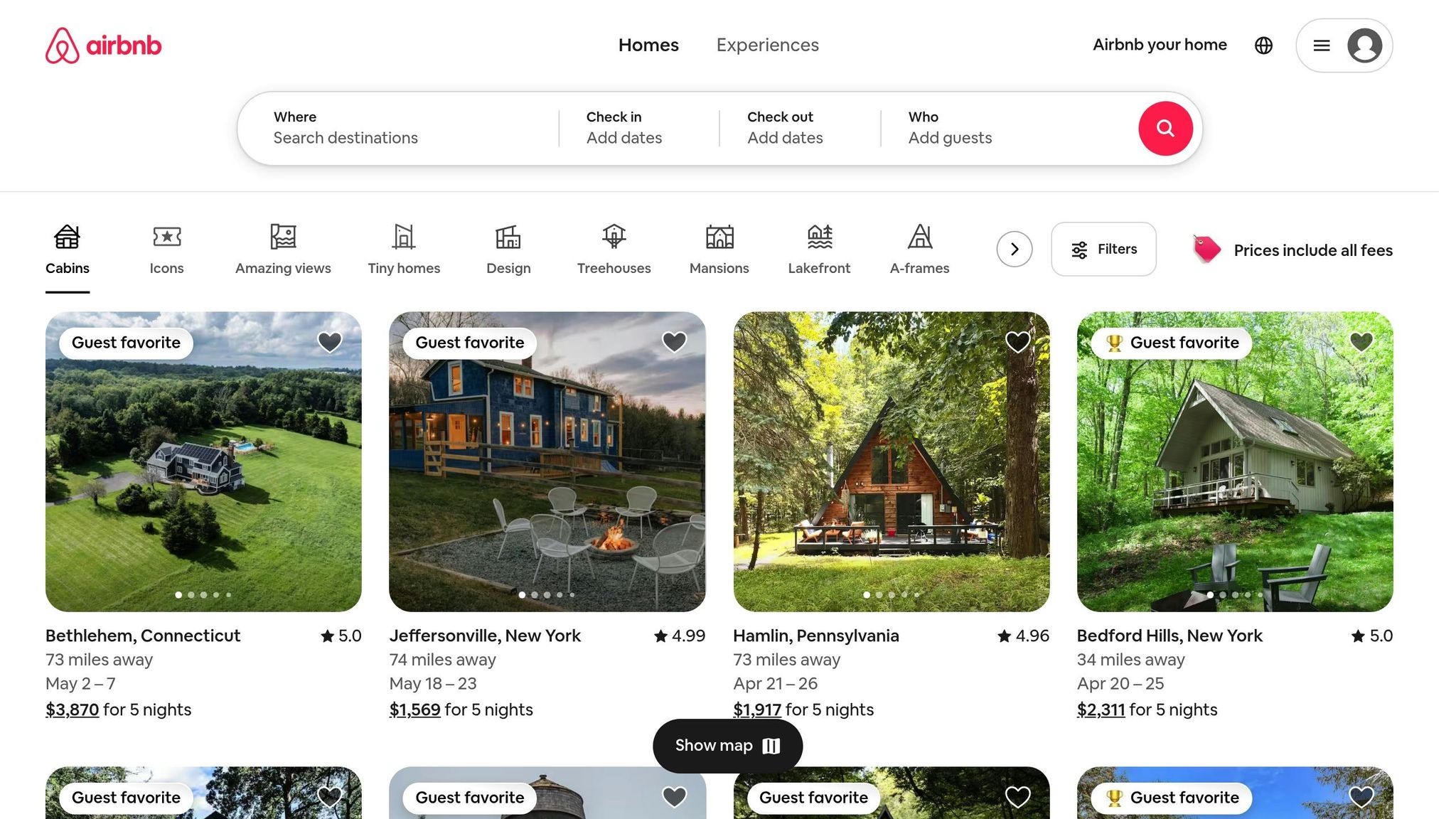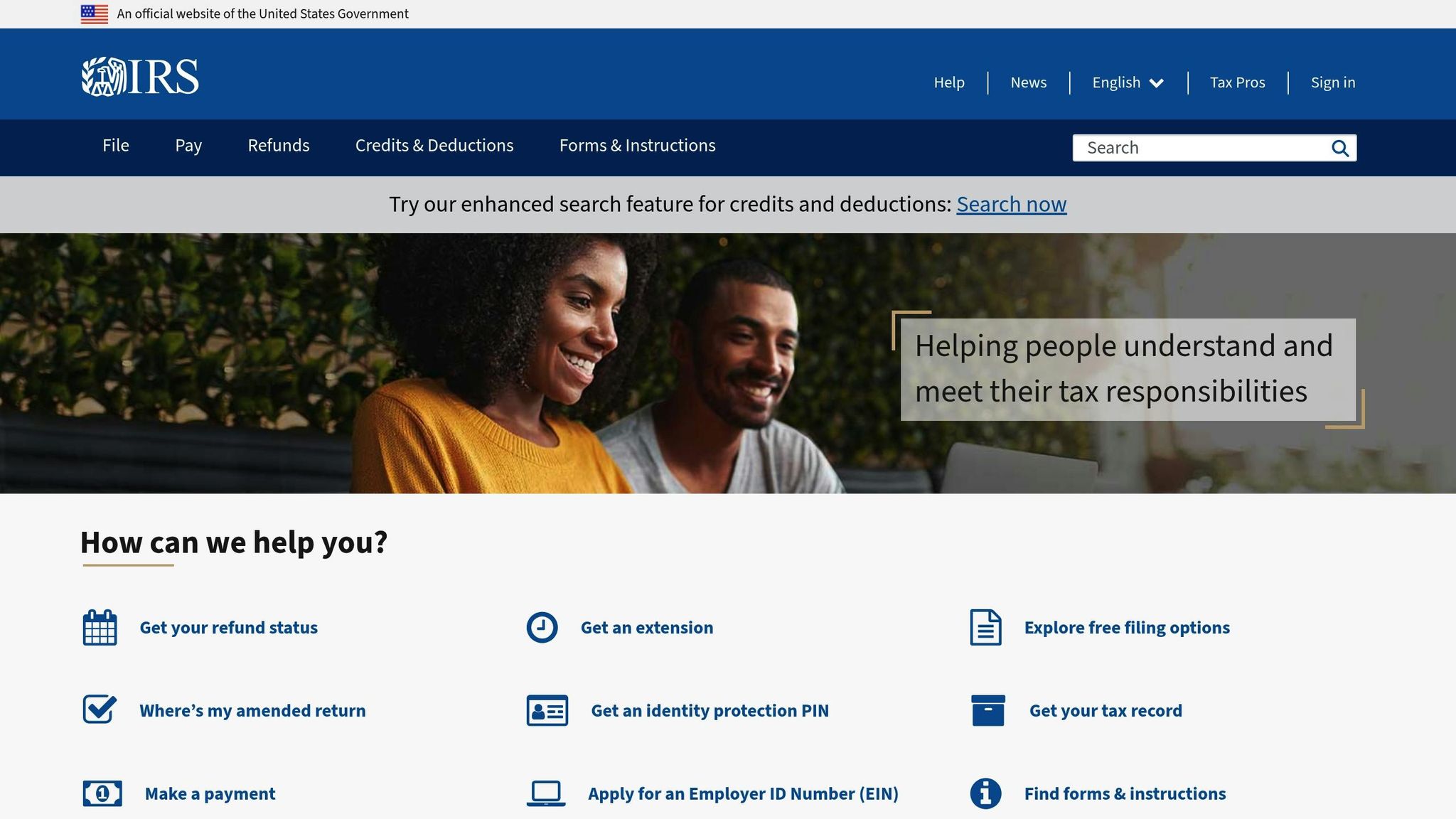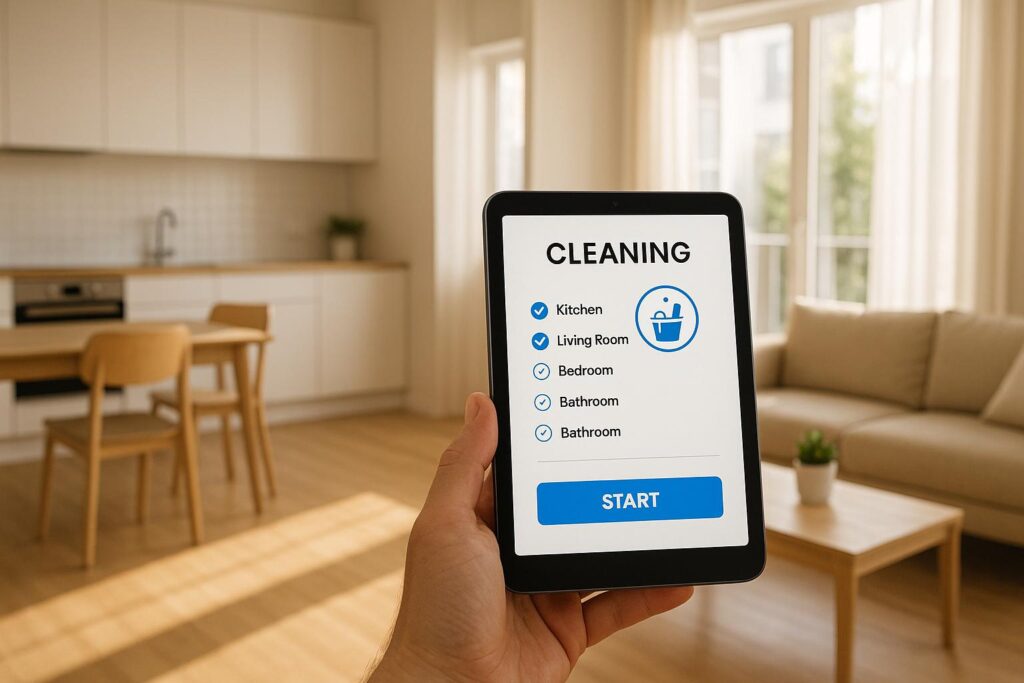If you’re an out-of-state Airbnb host with a property in Austin, here’s what you need to know to stay compliant with taxes and regulations in 2025:
- Austin Hotel Occupancy Tax (HOT): A total of 11% (9% city tax + 2% venue tax) applies to short-term rentals. Starting April 1, 2025, Airbnb will automatically collect this tax for bookings made on their platform. For direct bookings, you’ll need to collect and remit the tax yourself.
- Texas State Hotel Tax: Texas charges an additional 6% tax on short-term rentals. Airbnb handles this for platform bookings, but direct bookings require you to register with the Texas Comptroller and file separately.
- Federal and Home State Taxes: Report rental income to the IRS on Schedule E (Form 1040). If you rent for more than 14 days, all income must be reported. Out-of-state hosts must include this income on their home state tax return, even though Texas has no state income tax.
- Short-Term Rental (STR) License: You need an STR license from Austin’s Development Services Department. This involves providing property details, passing inspections, and appointing a local contact for emergencies.
- 2025 Rule Updates: Airbnb and other platforms will take on more tax collection duties, and licensing requirements are tightening. Stay informed to ensure compliance.
Key Tip: Work with local tax professionals or property managers to handle these responsibilities smoothly. For assistance, reach out to services like Austin Local Team.
Quick Overview of Taxes and Responsibilities:
| Tax Type | Rate | Who Collects? | Applies to Direct Bookings? |
|---|---|---|---|
| Austin HOT | 11% | Airbnb (for platform bookings) | Yes, host collects/remits |
| Texas State Tax | 6% | Airbnb (for platform bookings) | Yes, host collects/remits |
| Federal Income Tax | Varies | Host reports to IRS | Yes |
| Home State Tax | Varies | Host reports to home state | Yes |
Staying compliant with Austin’s tax and rental rules is essential to avoid penalties and maximize your property’s potential.
Airbnb Taxes For Hosts 101: Everything US Hosts Need to Know
Austin Hotel Occupancy Tax (HOT) Rules
Austin imposes an 11% Hotel Occupancy Tax (HOT) on all short-term rentals within the city. Here’s a breakdown of how the tax works and how it’s collected.
Hotel Occupancy Tax Overview
The total HOT rate is 11%, which includes a 9% city tax and a 2% venue tax. This applies to rentals lasting less than 30 days.
How Airbnb Handles HOT Collection
Starting April 1, 2025, Airbnb will automatically collect the 11% HOT for properties in Austin.
Tax Responsibilities for Direct Bookings
If you’re hosting direct bookings, you’re responsible for collecting and submitting the 11% HOT. Here’s a quick comparison of the process:
| Booking Type | Tax Collection Process |
|---|---|
| Airbnb Bookings | Automatically collected by Airbnb |
| Direct Bookings | Host must collect and remit the tax |
This setup ensures hosts can easily distinguish their tax responsibilities based on the booking platform.
State and Federal Taxes
In addition to local tax rules, state and federal requirements also come into play.
Texas 6% Hotel Tax
Texas charges a 6% occupancy tax on all short-term rentals. Platforms like Airbnb now automatically collect and remit this tax for hosts, following a system similar to local tax collection. However, for direct bookings made outside of Airbnb, hosts need to register with the Texas Comptroller’s office and obtain a tax identification number. For filing and payment instructions, refer to the Texas Comptroller’s official guidelines.
IRS Rental Income Rules
The IRS mandates that rental income be reported on Schedule E (Form 1040). If you rent your property for 14 days or less during the year, you typically don’t need to report that income on your federal return. For rentals exceeding 14 days, all rental income must be reported. You can deduct qualifying expenses like property management fees, cleaning costs, maintenance, insurance, utilities, depreciation on furniture and appliances, property taxes, and mortgage interest. Keep thorough records, as the IRS requires documentation for at least three years. Additionally, this income must also be reported on your home state tax return.
Home State Tax Rules
While Texas doesn’t have a state income tax, out-of-state hosts must still report rental income from their Austin property on their home state tax returns. Texas won’t tax this income, but your home state might. Include the gross rental income, document expenses and deductions, and review your home state’s rules for out-of-state rental income. Depending on your state, you may need to make quarterly estimated tax payments if a large tax liability is expected. It’s a good idea to consult a tax professional familiar with multi-state tax laws to ensure compliance.
sbb-itb-4c99469
Permits and Filing Requirements
Getting an STR License
If you’re an out-of-state host, you’ll need an STR License from the City of Austin Development Services Department. To apply, you’ll need to provide proof of property ownership or authorization, show evidence of adequate insurance, submit a property floor plan, and ensure the property meets safety standards through a city inspection. Check the City of Austin’s current guidelines for details on fees and processing times. Once your license is approved, make sure to display it in the rental property and renew it on time.
Local Contact Requirements
Austin regulations require out-of-state hosts to have a reliable local representative to handle guest concerns and emergencies. Many hosts fulfill this requirement by working with local property managers. Companies like Austin Local Team can help you find qualified representatives familiar with these regulations.
Tax Return Schedule
After securing your license and appointing a local contact, it’s important to stay on top of Austin’s tax return deadlines. File HOT returns according to the City of Austin’s guidelines, which depend on your annual revenue. Check the latest filing deadlines to avoid penalties for late submissions. If you’re booking directly with guests, you’ll need to calculate, collect, and remit the required taxes yourself. For hosts using platforms like Airbnb, keep records of your total revenue and any taxes collected.
2025 Rule Updates
Austin’s STR regulations are set to see some important changes in 2025. Here’s what hosts need to know:
Platform Tax Collection Rules
Starting in 2025, booking platforms may take on more responsibility for collecting and submitting the 11% HOT (Hotel Occupancy Tax). If you’re an out-of-state host, keep an eye on official city updates to understand how this might affect your operations. Licensing procedures are also expected to shift, so stay informed.
Changes to Licensing Requirements
Licensing rules are expected to tighten in 2025. Hosts will likely need to verify and prominently display updated rental licenses. Stay ahead by following updates from the City of Austin Development Services Department and ensuring your paperwork aligns with the latest guidelines.
Staying on Top of Rule Changes
Regulatory updates can come fast. To stay compliant, subscribe to official newsletters, follow local news, and seek advice from local professionals. Partnering with experts like Austin Local Team can help you navigate these shifts with confidence.
Help for Out-of-State Hosts
Managing an Airbnb property from another state can be tough, especially when dealing with tax rules and local regulations. Luckily, there are professional services designed to make the process easier.
Austin Local Team Services
Austin Local Team connects out-of-state Airbnb hosts with real estate professionals who specialize in Austin’s short-term rental market. Here’s what they offer:
| Service | What It Does | Why It Helps |
|---|---|---|
| Agent Matchmaking | Pairs you with local real estate experts | Get tailored advice for managing your property |
| Market Analysis | Provides local market insights | Understand your property’s rental potential |
| Property Valuation | Offers a Comparative Market Analysis (CMA) | Know the true value of your investment |
| Local Support | Links you to reliable contractors | Simplifies property upkeep and maintenance |
These services not only simplify compliance but also help streamline your property management tasks. For example, Kevin and Katie P., a couple from Washington, DC, worked with Tyler from Austin Local Team. Tyler’s in-depth understanding of Texas property laws helped them navigate regulations they hadn’t encountered before.
By partnering with local professionals, you can:
- Stay on top of multi-jurisdictional tax requirements
- Meet regulatory standards
- Handle permit renewals with ease
- Keep tax documentation in order
- Manage specific property needs effectively
Need help with your Austin rental? Reach out to Austin Local Team at 512-710-0337 or email them at copilot@localteam.ai. Their simple questionnaire ensures you’re matched with experts who understand the challenges of hosting from out of state.
Having local support is key to managing taxes, staying compliant, and making the most of your property in Austin’s competitive rental market.
Summary
Here’s a quick look at the key tax and regulatory changes coming in 2025.
If you’re an out-of-state Airbnb host in Austin, navigating tax and compliance rules can be tricky. Starting in 2025, platforms will handle state and local tax remittance automatically. However, if you accept direct bookings, you’ll need to register for taxes separately. Additionally, there are updates to license renewal requirements and rules for appointing a local representative.
Staying informed can help you avoid penalties. Reach out to the Austin Local Team for professional assistance.








